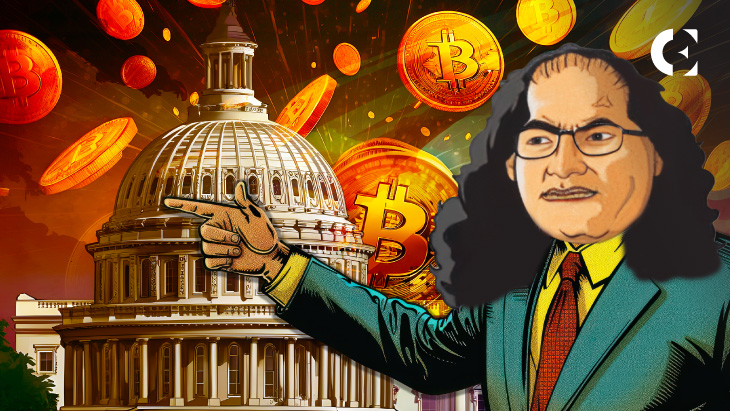- Michael Saylor claims Bitcoin is protected by the First Amendment as a form of free speech.
- Ripple CTO argues Bitcoin’s functional aspects can still be regulated.
- The debate highlights ongoing tensions regarding the legal status and regulation of Bitcoin.
A hot topic brewing among crypto leaders like Ripple’s CTO and MicroStrategy’s chairman is whether the First Amendment of the U.S. Constitution protects Bitcoin. The debate centers on whether Bitcoin, as open-source software and a decentralized financial tool, constitutes a form of free speech.
Michael Saylor, Chairman of MicroStrategy, led the argument that Bitcoin is a form of speech and deserves protection from government regulation.
The argument was based on the idea that Bitcoin operates through code, which the courts have recognized as a form of speech. Regulating or banning Bitcoin would be a violation of the right to free speech. However, not everyone agrees with this view.
Ripple CTO’s Challenge to the Claim
Community figure Khaled Elawadi responded to Saylor’s argument by pointing out the distinction between speech and actions, and David Schwartz, Ripple’s CTO agreed. He then went on to make a challenge to the claim, counterarguing that while Bitcoin may have expressive elements, it also has functional aspects that directly affect real-world actions, like mining and financial transactions.
Schwartz compared Bitcoin to hacking and denial-of-service (DoS) attacks, noting that these also involve code and communication but are still regulated because of the damage they can cause. He contends that the government can regulate Bitcoin’s functional elements—such as energy consumption in mining—without infringing on free speech.
“When the government is trying to regulate particular conduct, you don’t have a First Amendment defense that you achieved that conduct with actions that are also expressive,” Schwartz explained. He clarified that the First Amendment protects expression, but the government has the authority to regulate functional actions, even if they are associated with speech.
Crypto Community Weighs in on the Debate
The debate drew mixed reactions from the cryptocurrency community. Khaled Elawadi emphasized the need for a distinction between speech and actions, stating:
“Speech is one thing, and actions are another. If someone attacks a network, it’s malicious and should be illegal, regardless of whatever speech happens to be associated with it.”
Meanwhile, others had different perspectives. X user Daniel argued, “[Bitcoin] is also a weapon, therefore protected under the Second Amendment,” claiming it is “a much stronger protection” than the First Amendment.
Disclaimer: The information presented in this article is for informational and educational purposes only. The article does not constitute financial advice or advice of any kind. Coin Edition is not responsible for any losses incurred as a result of the utilization of content, products, or services mentioned. Readers are advised to exercise caution before taking any action related to the company.







